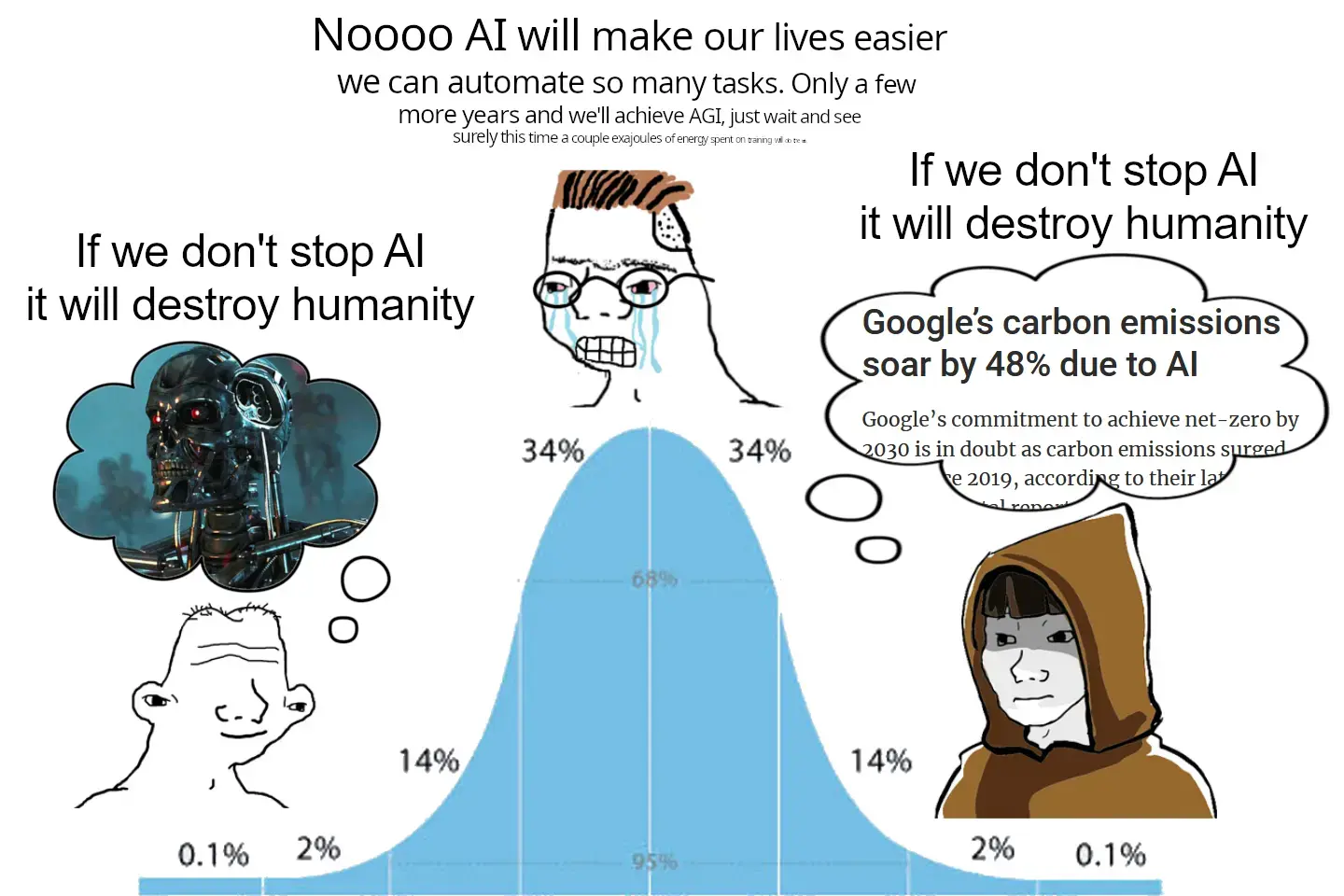this post was submitted on 05 Jul 2024
1101 points (95.3% liked)
Memes
51963 readers
392 users here now
Rules:
- Be civil and nice.
- Try not to excessively repost, as a rule of thumb, wait at least 2 months to do it if you have to.
founded 6 years ago
MODERATORS
you are viewing a single comment's thread
view the rest of the comments
view the rest of the comments

I'll try to keep this short then.
How does any technology ever see use outside of oppressive structures? By understanding it and putting to work on liberatory goals.
I think that crucial to working with AI is that, as it stands, the need for expensive hardware to train it makes it currently a centralizing technology. However, there are things we can do to combat that. For example, the AI Horde offers distributed computing for AI applications.
We gotta find datasets that are ethically collected. As a practitioner, that means not using data for training unless you are certain it wasn't stolen. To be completely honest, I am quite skeptical of the ethics of the datasets that the popular AI products were trained on. Hence why I refuse to use those products.
Personally, I'm a lot more interested in the applications to robotics and industrial automation than generating anime tiddies and building chat bots. Like I'm not looking to convince you that these tools are "intelligent", merely useful. In a similar vein, PID controllers are not "smart" at all, but they are the backbone of industrial automation. (Actually, a proven use for "AI" algorithms is to make an adaptive PID controller so that's it can respond to changes in the plant over time.)
These datasets do not exist, you got that right.
I highly doubt there is much AI deep learning needed to keep a robot arms PIDs accurate. That seems like something a regular old algorithm can do.
A deep neural adaptive PID controller would be a bit overkill for a simple robot arm, but for say a flexible-link robot arm it could prove useful. They can also work as part of the controller for systems governed by partial differential equations, like in fluid dynamics. They're also great for system identification, the results of which might indicate that the ultimate controller should be some "boring" algorithm.